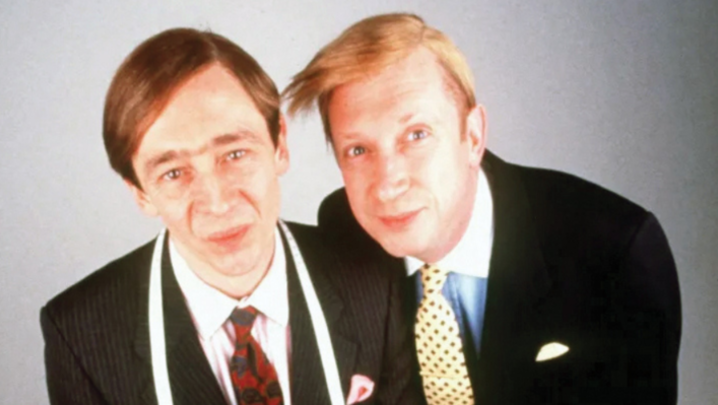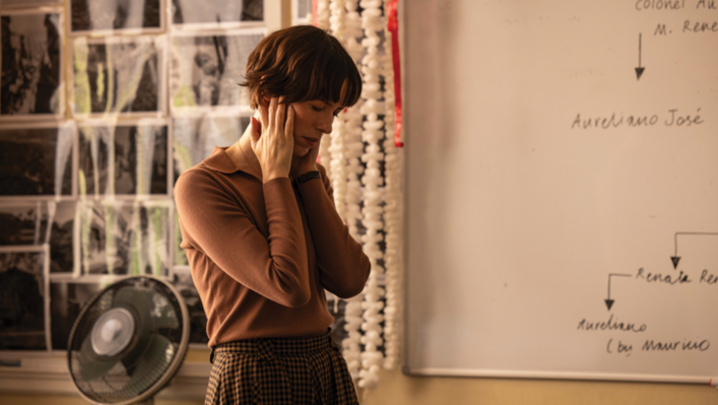Does the BBC need a new regulatory system following Lord Dyson’s report into Martin Bashir’s 1995 Diana interview? Caroline Thomson considers the arguments.
It feels like remote history, but it’s true: 27.1 million people watched Boris Johnson announce the first lockdown for the UK on 23 March last year. The sequel in May, announcing the path out of lockdown, attracted an even larger audience of 27.5 million, while the PM’s announcement of a repeat of lockdown in January this year drew a slightly smaller audience – as repeats tend to – of “only” 25.2 million.
All three of those programmes represented mass gatherings around our TV sets. Only one event since the advent of multichannel television has surpassed them all: the funeral of Diana, Princess of Wales, in September 1997, was watched by 32.1 million.
It’s easy to think that it is only disaster that impels us to huddle around the screen, but the largest TV audience of all time in this country was in fact for a triumph (if you happen to be English). The 1966 World Cup final drew an estimated 32.3 million viewers, according to the somewhat primitive contemporary methods of measurement used by the BBC and ITV. The opening and closing ceremonies of the London Olympics brought together 24.4 million and 24.6 million people, respectively, in front of their television sets.
I dwell on this mass of figures to demonstrate the power of two things: trust and news. There is nothing that drives us to share an instant experience more than the coverage of live events – and nothing that drives our choice of how to watch it more than our trust in public service broadcasters.
That ability to gather people together is an immense power to rest in the hands of corporations and one of the strongest reasons why so many nations choose to have at least one well-funded broadcaster that serves a public purpose. It is also why broadcasting should not be regarded or regulated as an industry like any other, and why it should be – as it is today – given special status for its cultural, social and cohesive value.
"The BBC’s… problems are, at heart, cultural rather than regulatory"
In each of these cases I cite, more than half, and up to three-quarters, of those audiences watched on the BBC. The proportion that watched Diana’s funeral on the BBC was 60%.
It’s hardly surprising that politicians should be suspicious of any organisation that wields that much potential power and influence with the people on whose votes they rely for their own ability to govern.
The BBC has always had to be aware of that suspicion and the pressure on the corporation’s independence that accompanies it.
However, I am not sure the BBC has always responded in the best way, either to allay political suspicion or, by contrast, to resist threats to its special status as an organisation outside the currents of politics.
It is exceptionally good at making television shows, radio programmes, news content; it is a model for other nations around the world in the way that it helps to stimulate the broader cultural health of the UK; it is much less good at being open and accountable about its decision-making and its processes.
The trust bestowed upon the BBC by the British public is hard won and easily lost. It can never be taken for granted. To be relied upon in the future, there has to be greater transparency and accountability. The question is how to achieve this without either exposing the BBC to the perils of political manipulation – something that is happening to an alarming extent in other European countries, from the Netherlands to the Czech Republic – or damaging its ability to compete in a hardening, consolidating market.
This latter financial point has already emerged as the focus of the Government in its approach to PSB generally, and seems to miss the point of public service, but that is a subject for another day. To some extent, it is inevitable in an organisation as large and multi-faceted as the BBC that transparency and accountability can suffer when there is a sense of siege outside and uncertainty within. But that is precisely the moment when it is imperative that the processes of openness are working.
For the BBC, crises mean that its critics always reach for the governance button. I am not convinced.
There has been a suggestion of appointing an editorial committee to supervise BBC News production. My experience tells me that adding layers of bureaucracy is rarely the way to improve either function or accountability within Broadcasting House. Who would appoint this committee? What would prevent it becoming a tool of politicians and outsiders heavily influenced by the BBC’s commercial enemies in the publishing industry?
"Leadership to change the culture [and encourage] accountability is the key"
Or, in the future, by other external forces that we cannot predict today? At its most basic, how do you prevent it becoming yet another tick-box exercise?
An editorial committee with any taint of political appointment, just like a politically-appointed main board, would destroy independence and rot the trust of licence-fee payers.
The BBC’s governance and operational problems are, at heart cultural, rather than regulatory. Leadership by example to change that culture for the better and to encourage honest self-reflection and accountability is the key.
In Tim Davie, the BBC has a very strong Director-General more than capable of doing this. I think the process could be helped by the appointment of one – carefully chosen and reliably free-thinking – non-executive director. They would be a guarantor of independence, of editorial standards and of accountability and could have the added advantage of being the designated, obviously independent, recipient of whistleblowers’ complaints.
This is, as we all know, a critical moment for public service broadcasting as it faces unprecedented competition and unusual political pressure. The BBC, through its governance, has a duty to maintain the trust of the British people. And, whatever our governments might think about the advantages of being able to communicate directly with voters, the existence of a trusted medium connecting mass audiences with their leaders is crucial to the strength of democracy.
It has always suffered from external attacks and thus, I think, adopted a defensive posture more often and more strongly than perhaps it might have done. This in turn promotes secrecy, rather than openness, in any organisation – another reason for putting cultural change ahead of regulation, something that independent broadcasting has had quite enough of already.
Appear on the Today programme, answer questions on Feedback, use your own airwaves to explain and make your case; but also listen and, yes, when necessary, apologise.
When David Cameron first achieved power by agreeing a coalition with Nick Clegg in 2010, the BBC cut into normal scheduling to show that democratic process in action. The audience – I am back to big numbers again – was 9 million people, 2 million more than would have watched the episode of EastEnders that “WestminsterEnders” replaced.
That power inherent in the BBC is the friend of government and people. Responsibly and accountably used, it is a pillar of our communal relationship. But it is a power that belongs to the people, not to parties. It is worth more, and it should be protected more thoughtfully, than the BBC’s would-be reformers would have us believe.
Caroline Thomson is the Chair of Digital UK. She was the BBC’s chief operating officer 2006-2012.







